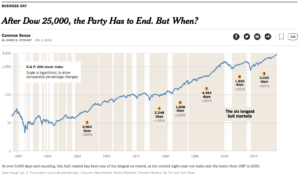If you are not a regular listener to Michael Barbaro’s “The Daily” podcast, you should be. Today’s podcast turns the President’s racist, hate-filled vulgarity into a question of why any nation might or might not admit immigrants and why nations might set national, educational, or skill-based constraints on these admissions.
I would contend that at least since the 17th century, nations have recognized and sought to build immigration policy around what policy makers feel are the best economic interests if not of the nation, then at least of that portion of the nation capable of making and benefiting from policy. So, to take what is doubtless the worst chapter in North American history, while southern planters were eager to admit African slaves in large numbers because they served the financial interests of southern slave owners, northern merchants, bankers, manufacturers, and farmers preferred formally “free” wage workers for whose care and upkeep they held no responsibility. Both wage earners from Europe and slaves from west Africa served the economic interests of public officials responsible for policy making. I believe that this practice has remained relatively constant over time.
Some readers might object that the 1882 Chinese Exclusion Act had no economic component; that it was racist through and through. All immigration restriction — or nearly all — has without question a racial or ethnic component. Yet, a quick glance through the historical record will show that “earlier,” more “English,” or more “European” — white —workers, even where they might demand and win a higher wage, enjoy an advantage over non-European wage earners, because they are closer to and politically better equipped to shape the policies that govern immigration and its restrictions. Moreover, immigration restriction, from the very beginning, has never been a means of raising the wages of working families; rather has it always been a means of placing downward pressure on the wages of restricted groups. (Imagine, for a moment, if undocumented Mexicans and Central Americans laboring in California’s central valley suddenly enjoyed the same legal protections as any other worker. Not only would their wages soar, but so too would the wages of other non-agricultural workers in the valley. Moreover, rising factor costs would drive innovation to replace now-expensive manual labor with less expensive automation — technology whose management and maintenance would demand higher skilled, higher wage workers.)
Which helps to explain why, after years of opposing the legalization of the United States’ undocumented workforce, organized labor in the US — the AFL-CIO — suddenly saw the light and performed an about-face. The preservation of the illegal status of undocumented workers actually drives wages down, not up.
More broadly speaking, however, how might completely open boarders reshape the economies of the Americas? Economists often talk about efficiencies and about the productivity of labor. When units of output at any given cost increase with the same number (and cost) of labor hours, productivity is said to increase. Or when these remain the same while the number (and/or cost) of labor hours fall; again, productivity increases.
Economists also talk about gains from trade. Two towns next door to one another will nevertheless trade goods with one another because the productivity of workers in one of the towns is greater for some set of goods than the productivity of workers in the other town. The same, of course, is also true of nations. We purchase goods made elsewhere because they are manufactured more efficiently. And people elsewhere purchase our goods for the same reason.
But, what about that good called “labor”? Can we purchase the “labor” of some equally skilled workers more cheaply than the “labor” of others? Of course, the answer is “Yes. We can.” And we do. The Apple computer on which I compose my blog is designed in the US; but it is manufactured in China. Were this labor performed in the US, its cost would rise astronomically — for the same skill level. And were the US to open its boarders indiscriminately to all Apple workers in China, the flood of workers into the US would eventually leave no one willing to work in China for these relatively lower wages. Apple would then either have to raise its wages in China, or, perhaps, if there were no more comparative advantage to manufacturing in China, move its production facilities elsewhere, perhaps the US. Immigration restrictions serve to preserve these comparative advantages. Lifting these barriers also reduces the comparative advantage manufacturers enjoy by locating in one country or another. Here the “efficiency” or “productivity” is won not from labor being more highly skilled or working harder, but simply from geographical location and from policy makers proving able to limit the export and import of this good: i.e., the good we call “labor.”
Finally, economists also talk about the arbitrage opportunities created when any investor is able to restrict the supply, the demand, and hence the price and the value of any good that is in demand. Free market advocates often complain when wages are set by law, when restrictions are placed on safety or health in work places, or when municipalities require investors to restrict the output of noise or pollutants. Public restrictions of any kind are loudly denounced — except, of course, for restrictions on labor. Why?
As always, racism and nationalism undoubtedly plays some role. But let me suggest that racism and nationalism are simply means that investors use to gain arbitrage opportunities within the labor market. We can test this hypothesis, in theory, by considering the consequences that might follow from — as the President apparently wishes — effectively limiting immigration only to high skilled, highly educated wage earners who will only emigrate if they are offered a higher wage than they currently earn in, say, Germany or Holland or Norway. High skilled, highly educated wage earners also live in Haiti and Honduras, of course; which is where racism and nationalism kick in. But, if we examine the production function, where the Marginal Productivity of Labor (MPL) is equal to the change in quantity produced over the change in the capital it costs to produce that quantity, it stands to reason that the MPL will decline with a rise in wages. Moreover, all of the work performed by undocumented immigrants at low wages will now cost much more because performed by workers enjoying legal protections. Under any normal circumstances, this will result in a substitute of human labor with technology and/or the shifting of investments to production — of avocados, peaches, nuts, etc. — in other markets. In other words, all else held equal, effective boarder restrictions to high skilled, highly educated labor will place upward pressures on wages, downward pressures on productivity, both of which normally lead to an economic contraction, higher unemployment, lower returns, etc.
But what happens if we throw the borders open. Historically we can look at the last two decades of the 19th century to see what happens. No surprise here. A flooded labor market leads to huge efficiencies, efficiencies that translated into an unprecedented expansion in productivity, a lowering of prices, and an expansion of the economy overall; which proved great for investors. And, as we neared the peak of growth, full employment, and full productive capacity; again, no surprise, we saw upward pressures on wages and benefits in response to more effective organizing among workers.
In the short run, throwing our borders open today would probably lead to downward pressures on wages across the board; but it would also lead to much greater efficiencies; moreover, as wage earners moved from low wage markets to higher wage markets, the wages and benefits in the regions from which they are moving might be expected to rise in order to attract sufficient workers. In the long run, however, we should expect gains from trade — not gains from arbitrage.
What then is the truth about immigration? The truth is that immigration and more immigration would be good economically for the US; the truth is that legal protections for immigrants would more than counteract downward pressures on wages from this immigration; the truth is that all (or nearly all) investors would benefit from relaxed border restrictions.
So, why are some investors in favor of stricter border restrictions? Consider the slave holder in 1858. What would he lose were his slaves suddenly declared free citizens? Obviously he would lose his “property” for which he might have paid the equivalent today of between $50-100K. But more than that, he would lose a lifetime of labor performed for the cost of upkeep and maintenance. He would lose the efficiencies and productivity won from slave labor. Restrictions on the freedom of this market in human beings won for the slave owner the arbitrage upon which he had built his fortune. A free labor market, by contrast, would ruin this arbitrage opportunity.
Now consider the investor whose marginal profits depend on maintaining lower than market factor costs (i.e., lower than normal labor costs). An employee who enjoys full legal protections would cut deeply into his marginal profits, perhaps even making it no longer profitable to cultivate nuts or avocados or peaches in the United States; or perhaps forcing him to invest in costly technology in order to compensate for higher labor costs. Even more, higher wages for individuals at the bottom of the income hierarchy places upward pressure on wages across the board. Should our hypothetical investor enjoy a diversified portfolio, she can expect higher factor costs in all of the markets in which she has investments. Indeed, it is not unlikely that these higher costs will lead, initially, into an economic slump similar to the slump encountered int he 1970s, when manufacturing, weighed down by costs for private health and private pensions, contracted.
In the long run, however, the US would have to shed its low wage, low benefit jobs; it would have to embrace the efficiencies delivered by efficient public transpiration, universal healthcare, and universal, free post-secondary education; and it would have to replace its low wage, low skill, jobs with high wage, high benefit jobs. Such a shift would be painful, specially for investors perched at the top of the income hierarchy who would be forced to see the efficiencies produced by labor transferred back down the income hierarchy to the working families that produced them in the first place.
No nation has been entirely successful making this transition. But, as my colleague Brad DeLong has written, Germany has been the most successful. By recognizing and distributing the efficiencies from health, transportation, and education, they shed low wage, low skill, large scale manufacturing more elegantly than any other industrialized nation. And by realizing these efficiencies, they also place themselves in a position to welcome lower wage workers to perform the work that many Germans won’t: legally, with full health coverage, and full educational benefits.
So which nation has made this transition least elegantly? Which nation is, in fact, moving in the absolute wrong direction: the US.



